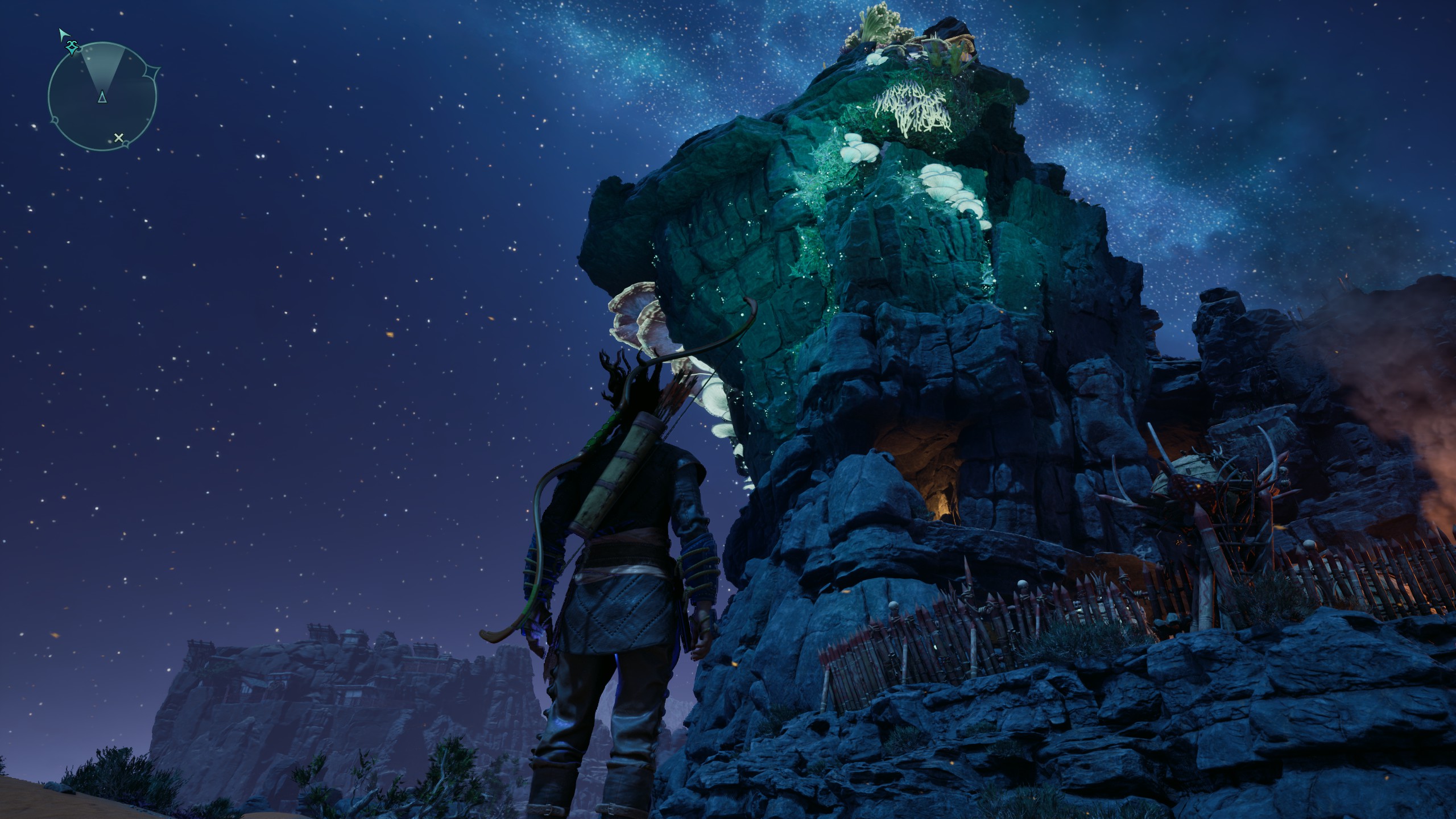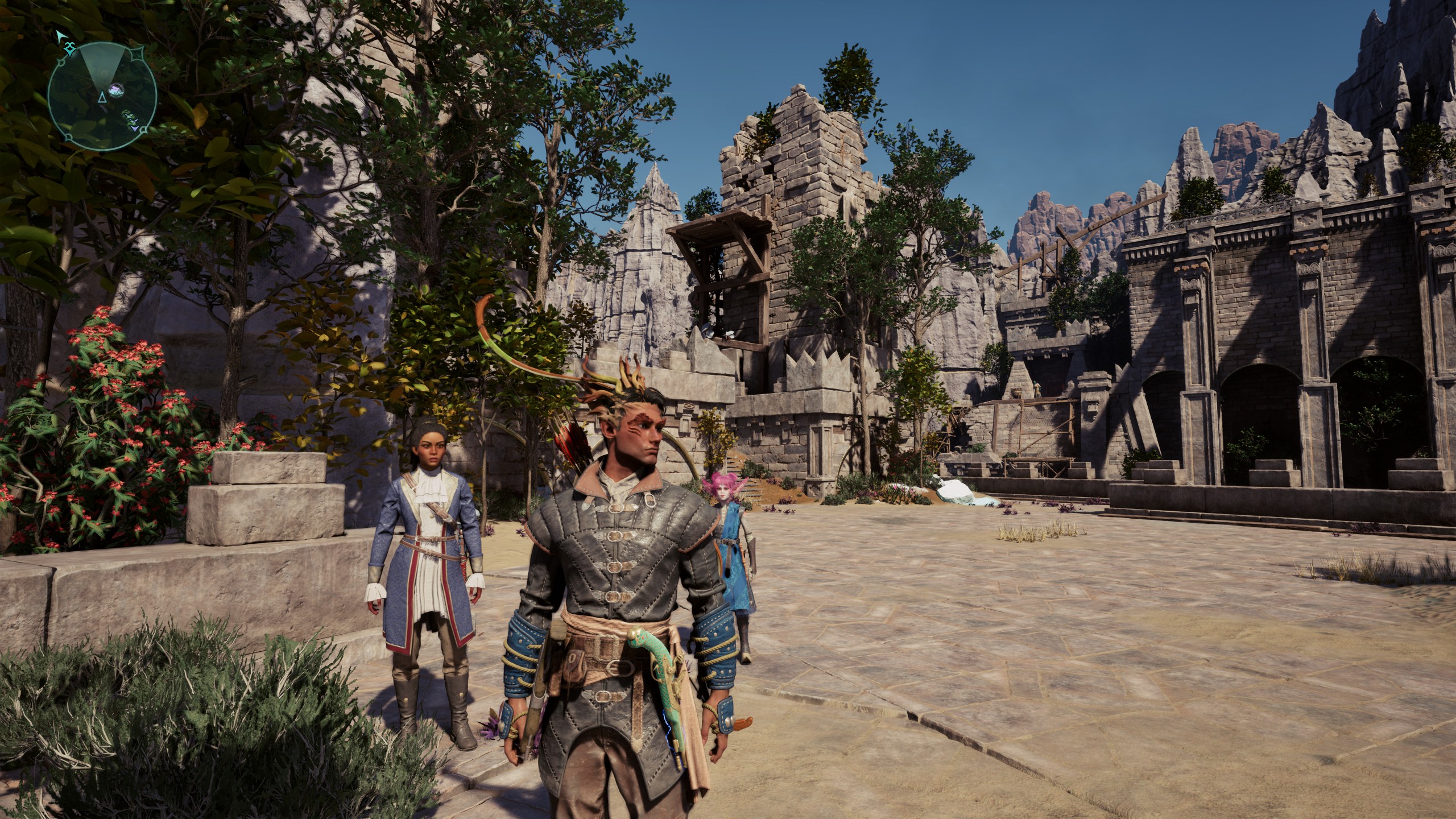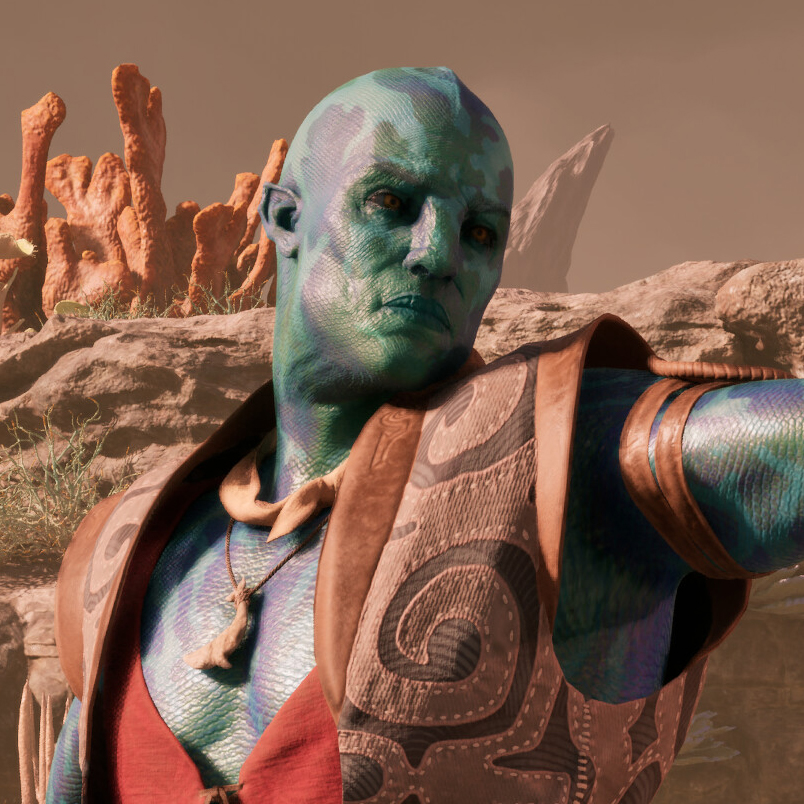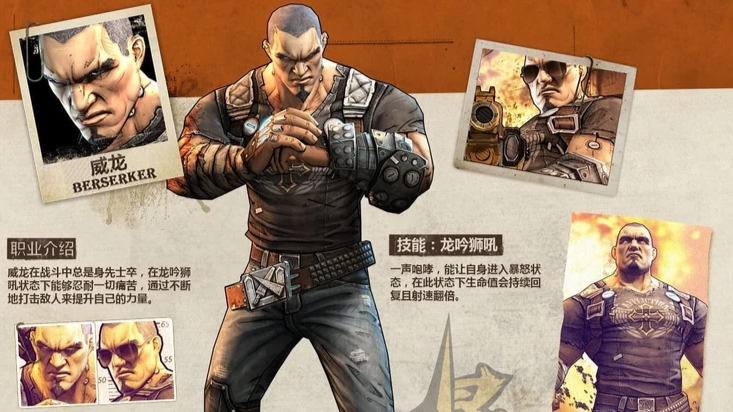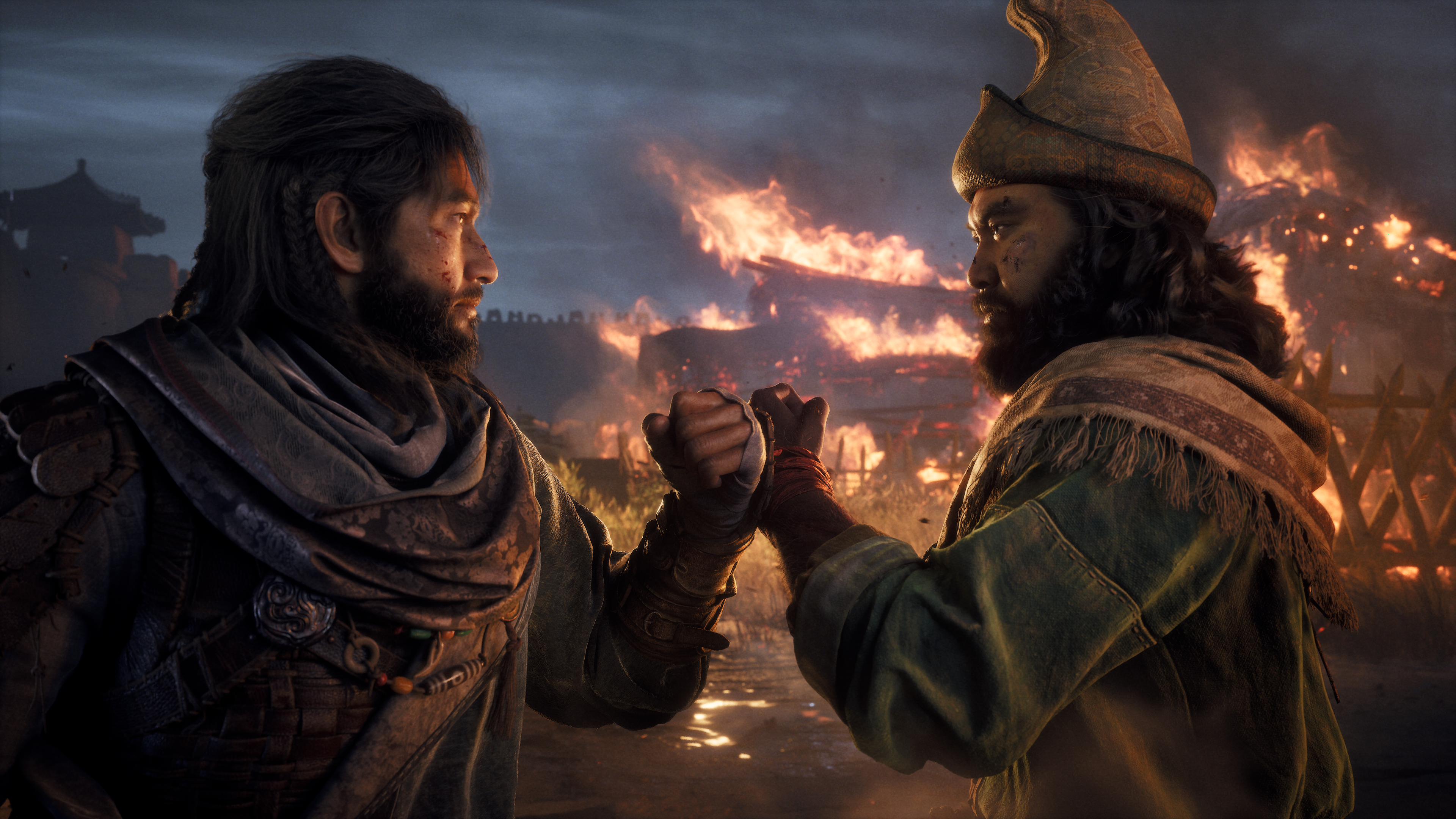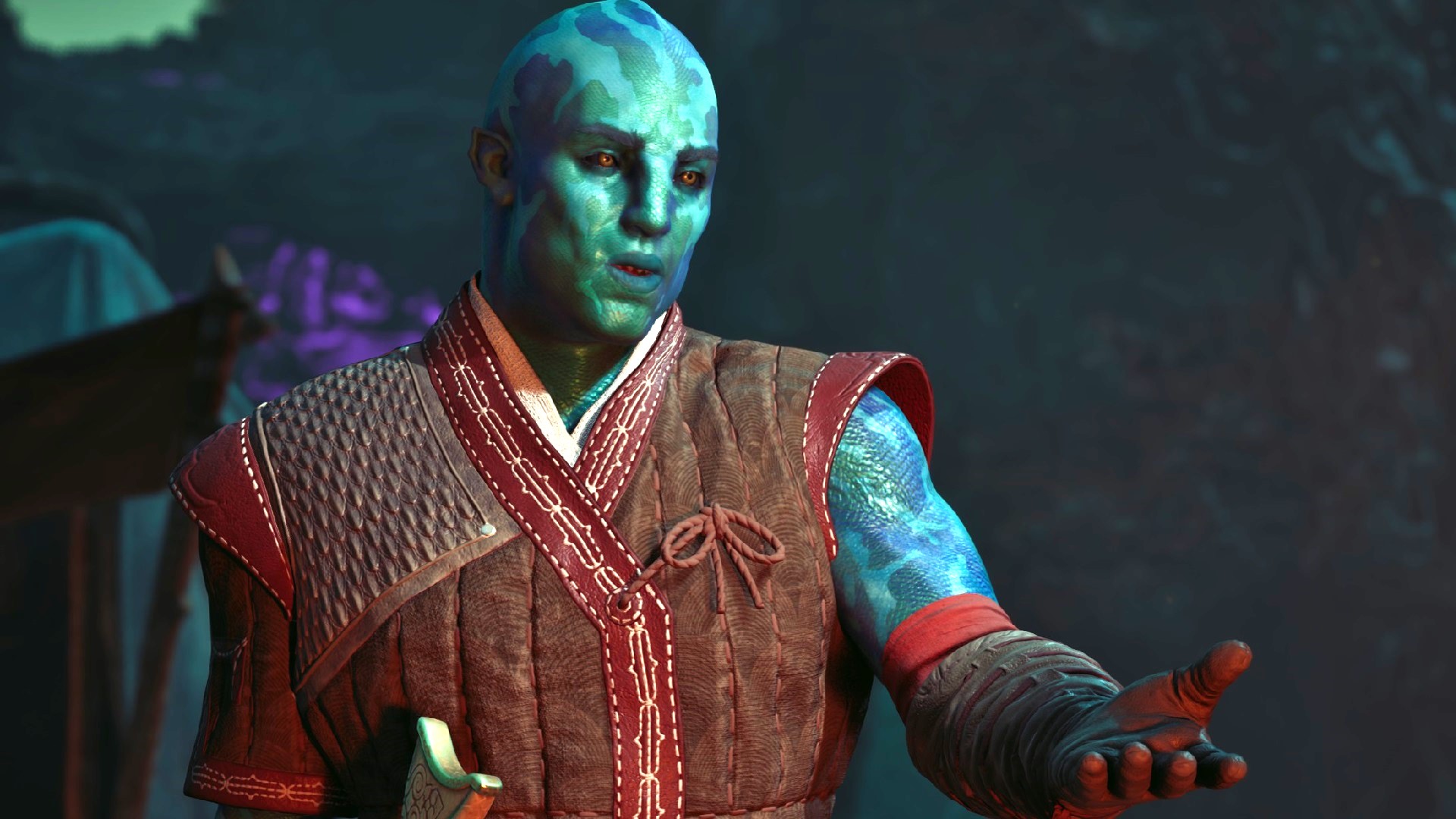
I enjoyed The Veilguard, but Avowed has put its successes and failures in a new light.
I am one of Pillars of Eternity’s strongest soldiers here at PC Gamer, a Sardaukar of Cipher builds, a praetorian for Obsidian’s deceptively philosophical fantasy universe. One of the most exciting things about Avowed since its first proper reveal has been how much it nailed the aesthetic and feel of Pillars from an entirely new perspective. That holds true for the final game, which is somehow both faithful to a cult, hardcore series of top-down RPGs while also managing to be a game I’d heartily recommend to Joe Sixpack demanding, “Just give me something like Skyrim, why didn’t they make another Skyrim?”
It impressed me just how well Avowed managed to thread the needle on this challenge that seriously stumped Dragon Age: The Veilguard, a similarly actionized follow-up to a lore-dense, tactical RPG series. Obsidian didn’t have to contend with a decade-long attrition of staff and a parent company with no understanding of the studio and IP it had invested in, but I think failing the balancing act of placating series fans while also creating new ones made for a final nail in The Veilguard’s coffin, so it shocked me to see another studio stick the landing immediately after.
Strange lands
So much of Avowed sounds, on paper, like The Veilguard. It’s an action pivot compared to prior games in the same setting. For the first time in the series, the previous game’s choices can’t be imported. In addition to the gameplay shift, Avowed is set in an unexplored corner of the world, with few returning characters.
But the difference is all in the execution. Across 16 years and four entries, Dragon Age never had a consistent identity, with each successive release overriding the previous one’s art style, mechanics, and, in the case of Veilguard, tone. The look and feel of Pillars has evolved—most notably with the injection of tropical pirate summer fun in Deadfire—but it’s always remained rooted in its unique combo of more grounded early modern historicity and colorful, almost psychedelic fantasy paperback spectacle.
Avowed also makes a cleaner break with Pillars of Eternity narratively, while simultaneously not invalidating the events of those games the way Veilguard did. It helps that Avowed doesn’t push a half-measure accounting of previous player choice like Veilguard’s Inquisitor customization. Avowed just opts for the tried and true RPG standby of “The exact events are shrouded in mystery…” while referencing characters and quests from previous games in clever, surprising ways. A real knockout for me was running into the parents of Pillars 1’s intro companion who dies at the end of the tutorial (spoilers), the “Trask Ulgo special.” I checked and, sure enough, Calisca mentioned her parents being in Avowed’s setting of the Living Lands all the way back in 2015.
There’s no room to hide something new and surprising in Dragon Age anymore.
What’s more, as Dragon Age went on, the weight of its story shifted entirely to its characters from its setting and politics, culminating in The Veilguard’s pure focus on its party roster as avatars of their respective factions. Pillars had strong, memorable characters, but Obsidian’s consistently been more of a setting and themes-first joint. A new game set in Eora was largely only beholden to those themes and that history, not the decade-plus personal sagas of Morrigan, Solas, and the Inquisitor which had subsumed Dragon Age’s fictional politics.
Avowed is framed in a way that may have benefitted a new Dragon Age project: It’s a follow-up to, but also a spinoff of, Pillars of Eternity. It’s unclear if we’ll ever see another mainline Pillars game, but Avowed doesn’t inherently preclude the possibility. Each new Dragon Age game tacitly carried the message, “this is what Dragon Age is now,” with an implication as the series went on that its more tactical, old-school roots were an aberration, and that the later games’ shift to action was always the plan.
Inquisition and Veilguard were both “omni-games,” the big, all-encompassing, world-saving story where you visit multiple nations in Thedas and see everything the setting had in store. They ironically made Dragon Age feel smaller than Origins or DA2’s focused corners of the world. There’s no room to hide something new and surprising in Dragon Age anymore, we’ve seen everything in its world at breakneck speed, with no time for any of it to soak in like those first two games had.
Dragon Age 2’s unique story structure and tangential connection to Origins always made it feel like a great spinoff instead of a sequel—ironic, considering it was the only one to get a number—and a fourth entry in the series really would have benefitted from a similarly lower-stakes, more focused framing. It sounded like The Veilguard’s original incarnation, codenamed “Joplin,” was attempting to do just that prior to its cancellation by EA in favor of live service efforts like Anthem.
Hardcore to the mega
Even with the star of CRPGs rising once more thanks to the stunning successes of Disco Elysium and Baldur’s Gate 3, the one-two punch at the peak of our Top 100 Games list, Pillars of Eternity has always lacked the same capacity to “break containment” to my eye. I love these games, but in addition to quietly having one of the highest skill ceilings in the entire genre—Josh Sawyer’s insanely demanding “The Ultimate” challenge is my favorite example of that—they have a correspondingly high skill floor, even more so than crusty classics like the OG Fallouts and Baldur’s Gates.
The Bethesda-style first person RPG is one with a ton of everyman and hardcore sicko appeal, and pitching a Pillars spin-off in that vein was an inspired move to get more players interested and invested in this genuinely special fantasy setting. Avowed hits you with capital-L Lore from the jump, but in a similar way to Disco Elysium, Dragon Age: Origins, or any given Elder Scrolls entry: You can almost sink into it like a warm bath, actively engaging or just filtering it out as “generalized fantasy bullshit” at your leisure, the quality of its quest and character writing more than enough to carry the day. The response among PC Gamer’s non-Pillars heads who have been playing Avowed has been a positive, healthy interest in its world and characters.
It doesn’t hurt that this is also a genuinely excellent action RPG. Among first person RPGs, games like Deus Ex or Dark Messiah still reign supreme in my heart thanks to their open-ended simulations, but I don’t think anything in the subgenre can touch Avowed when it comes to polished, well-balanced mechanics and feel—when the fighting starts, it’s less a sim, and more a high quality, very game-y action experience like Mass Effect 2 or The Witcher 3.
I hope to see Pillars of Eternity 3 and Avowed 2 some day, and Obsidian’s understanding of its audience and fictional worlds, coupled with a commitment to staying within its means to put out more consistent releases that don’t each have to be a mega-hit, makes both of those games a real possibility moving forward.
Avowed review: The classic Obsidian flair
Avowed tips: How to start off right
Avowed companions: Party’s all here
Best Avowed builds: Freeform skill builds
Avowed best weapons: What to dual-wield
